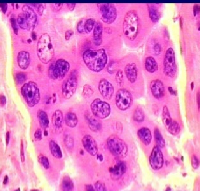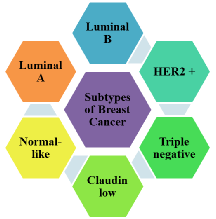
Copyright © 2016 Aceso Pharmaceuticals All Rights Reserved. Privacy Policy | Terms of Use

Therapeutic Focus:
Our strong Computational Chemistry, Molecular Modeling, and Drug Discovery teams are working diligently to discover new targeted molecular therapies to meet the unmet medical needs of patients suffering from the following Cancers.
Triple Negative (TNBC) and Other Breast Cancers:
Breast Cancer is the most frequently diagnosed cancer in females and a leading cause of cancer-related deaths of women worldwide. According to the WHO breast cancer led to 521,000 deaths worldwide in 2014. The American Cancer society projected an estimated 231,840 new cases of invasive breast cancer and 40,730 breast cancer related deaths in the US alone in 2015. Clinically, breast cancer is a heterogeneous disease characterized by 15 different subtypes of carcinoma.
Triple Negative Breast Cancer (TNBC) which is characterized by the absence of Estrogen receptors, Progesterone receptors and Human epidermal growth factor receptors, accounts for 15-20% of breast cancer patients. Triple Negative Breast Cancer continues to have a poor prognosis and is a very aggressive disease with median survival of advanced TNBC at 12 months at most , which is much smaller than other subtypes of advanced breast cancers.
There are no targeted therapies currently available for treatment of TNBC and chemotherapy with Anthracyclins and Taxanes remains the only approved treatment option.
Large Cell Neuroendocrine Carcinoma (LCNEC):
LCNEC is a rare but aggressive cancer of the lung which accounts for 3.1% of the lung neoplasms (~7000 new cases in US per year). LCNEC is considered a highly aggressive disease with low five year survival rates of 15-57%. LCNEC is currently classified as a variant of the Large Cell Carcinomas. LCNEC has a poor prognosis even at early stages with life expectancy of Stage IV LCNEC patients estimated to only about 6 months .
Current treatments are limited and do not improve prognosis of patients with LCNEC. Surgery alone or followed by platinum based chemotherapy is not sufficient to control disease progression. Considering the rarity of the disease, there is no clear consensus on therapies for LCNEC and treatment regimens are based on extrapolation of available therapies from NSCLC and SCLC. No targeted molecular therapies are currently available.











